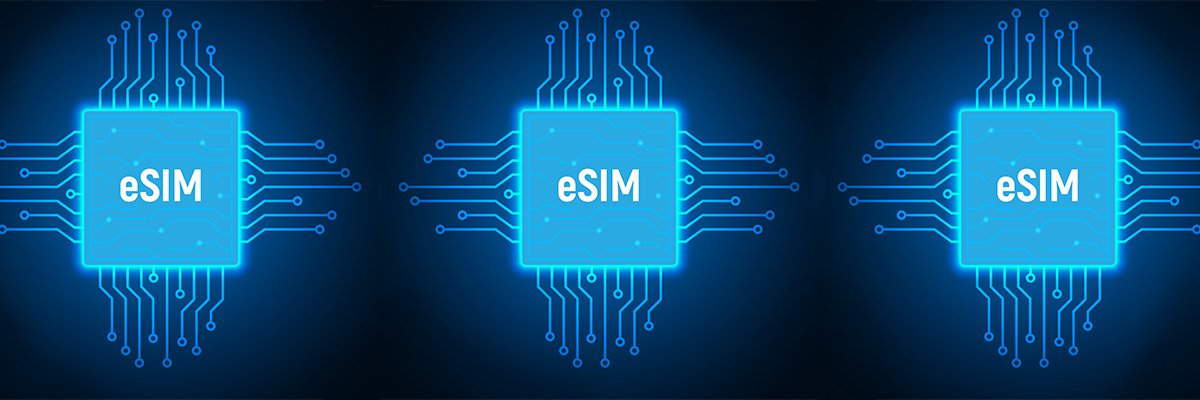The strong growth over the past year of the embedded subscriber identity module (eSIM) industry is continuing, reshaping a number of associated sectors, with consumer adoption of eSIM technology growing rapidly.
This is according to Trusted Connectivity Alliance (TCA), whose figures show that consumer eSIM profile downloads – also known as eSIM profile transactions – has more than doubled in 2023, increasing 109% year on year (YoY).
The study from the global industry association noted that future growth in consumer eSIM adoption is expected to be boosted by the launch of eSIM-only smartphones across more regions, the broader availability of eSIM-enabled devices and rebounding levels of international travel.
The research found that growth was predominantly driven by accelerating adoption within the North American market, where the wide availability and demand for eSIM-only smartphone models has seen leading mobile operators transition to digital-first strategies. Adoption rates also doubled across Asia and Western Europe.
The research observed that eSIM volumes were resilient despite significant economic uncertainty. Shipments of eSIMs collectively reported by TCA members decreased marginally by 2% to 374 million units, with TCA estimating that the total available market for eSIM was 390 million units in 2023.
Notably, the study found that volumes remained stable in the face of strong macro-economic headwinds. TCA’s report emphasised how global inflationary pressures and the cost-of-living crisis reduced overall consumer demand for smartphones and mobile subscriptions in 2023, though easing inflation towards the end of the year points towards a more positive outlook for 2024.
The ongoing impact of the global chip shortage – which saw operators overstock in 2022 to mitigate potential supply chain pressures – also tempered demand, but is anticipated to rebalance towards normal levels in 2024.
The market for traditional SIM was similarly shaped by broader macro-economic factors, with TCA estimating the total available market for SIM (excluding eSIM) reduced by 7% to 3.8 billion units in 2023. The study reported that there was a clear trend signalling the increasing digitalisation of the overall SIM market amid accelerating eSIM adoption in key regions such as North America.
TCA discovered that the overall upswing in consumer adoption was supported by significant ongoing investment in eSIM subscription manager (SM) platforms, which enable the remote provisioning and lifecycle management of eSIMs. The number of deployed consumer eSIM SM platforms rose by 25% in 2023 as mobile operators continued to bolster their digital capabilities.
M2M eSIM adoption – predominantly focused across automotive use-cases – was supported by a 12% increase in the deployment of M2M eSIM SM platforms.
Future growth in consumer eSIM adoption is expected to be boosted by the launch of eSIM-only smartphones across more regions, coupled with the broader availability of eSIM-enabled devices. Rebounding levels of international travel —anticipated to surpass pre-pandemic levels in 2024—also stand to support increased uptake as consumers turn to eSIM for greater choice and convenience when roaming.
Looking ahead, TCA expected global standardisation efforts such as GSMA’s eSIM for IoT Specifications (SGP.31 and SGP.32) to play an important role in promoting increased eSIM adoption across IoT verticals. The specifications introduce new, dedicated features to meet specific IoT requirements, simplifying deployments at massive scale and addressing the challenges associated with remotely provisioning and managing constrained IoT devices.
“For technologies to be widely adopted, they must be safe and reliable, provide a great experience and, most importantly, deliver real value,” said Bertrand Moussel, chair of the TCA Board, commenting on the study. “Our latest data makes it clear that wider eSIM availability is translating into strong adoption, with consumers worldwide now realising the benefits of flexible and seamless connectivity.
“As the evolution of the SIM ecosystem gathers pace, TCA is committed to bringing together stakeholders to address emerging opportunities and challenges. By collaborating on initiatives that increase interoperability, promote trust and support sustainable innovation across the secure connectivity ecosystem, the full promise of the global digital economy can be realised.”

